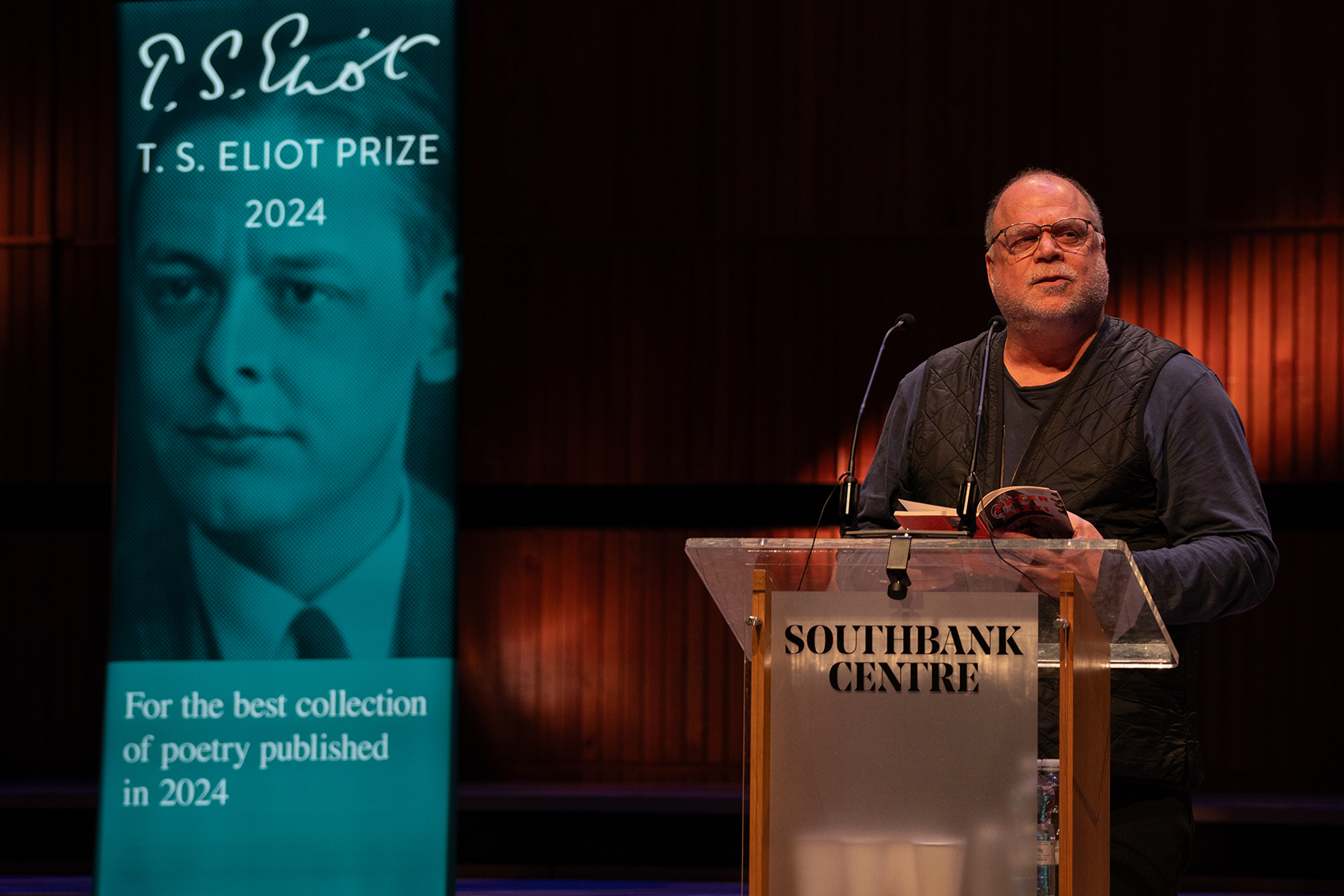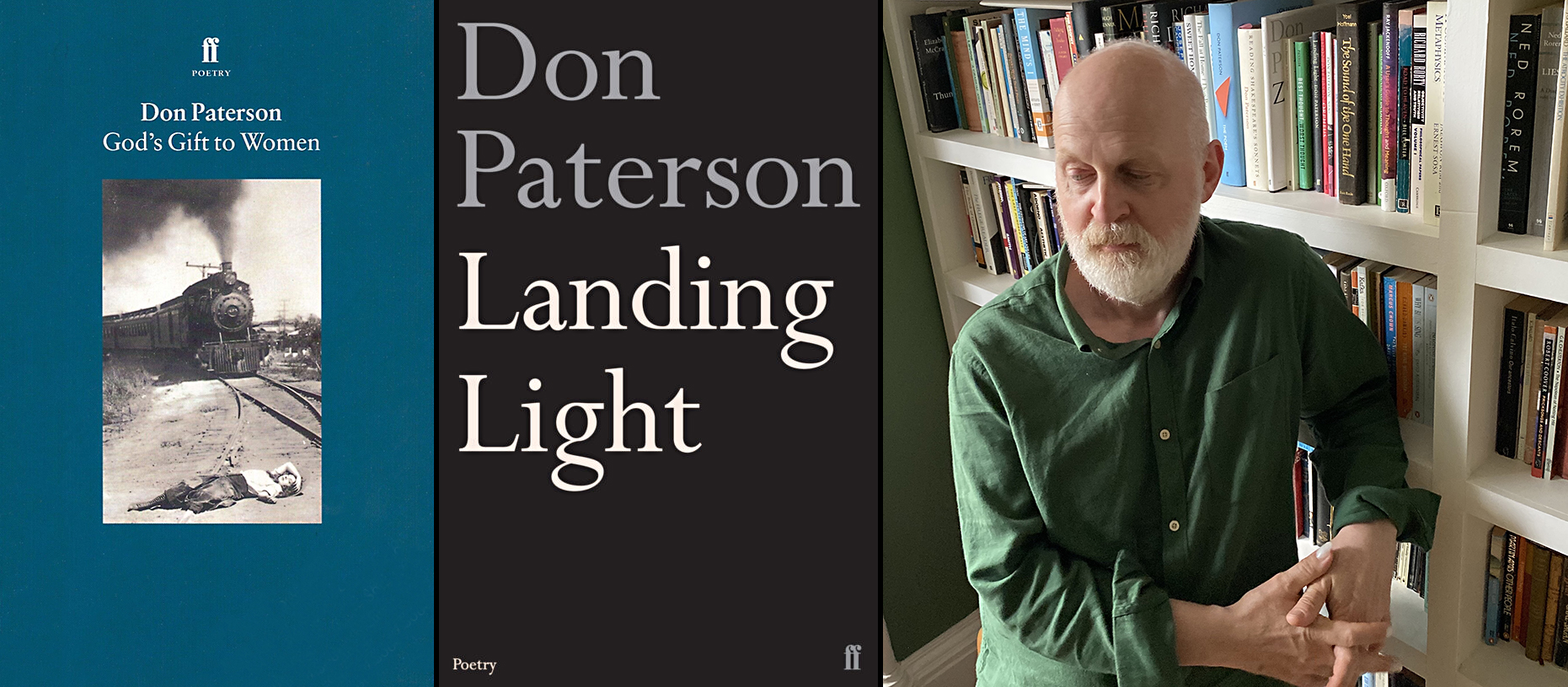
Peter Gizzi at the T. S. Eliot Prize Readings, Royal Festival Hall, London, 12 January 2025. Photo © Pete Woodhead
The T. S. Eliot Foundation is delighted to announce the winner of the T. S. Eliot Prize 2024 is Peter Gizzi for Fierce Elegy, published by Penguin Poetry.
Chair Mimi Khalvati said:
We are delighted to welcome and honour a work that is infinitely sad yet resolute, and so fully alive in body and spirit. Written in the afterlife of grief, Peter Gizzi’s Fierce Elegy brings us poems that revel in minutiae but also brave the large questions in a lyric sequence of transcendental beauty.
Judges Mimi Khalvati (Chair), Anthony Joseph and Hannah Sullivan chose the T. S. Eliot Prize 2024 Shortlist from 187 poetry collections submitted by British and Irish publishers. The eclectic list comprises seasoned poets, two debuts, two second collections, and two previously shortlisted poets from both long-established, and small independent presses.
Peter Gizzi was born in Alma, Michigan. He is the author of eleven collections of poetry, including: Now It’s Dark (2020); Archeophonics (2016), a finalist for the National Book Award; Threshold Songs (2011); In Defense of Nothing: Selected Poems, 1987–2011 (2014); and Sky Burial: New & Selected Poems (Carcanet Press 2020). In 2018 his work was the subject of In the Air: Essays on the Poetry of Peter Gizzi (Wesleyan).
Gizzi’s honours include the Lavan Younger Poet Award from the Academy of American Poets and fellowships in poetry from the Howard Foundation, the Rex Foundation, the Foundation for Contemporary Arts, and the John Simon Guggenheim Memorial Foundation. He has been a Judith E. Wilson Visiting Fellow in Poetry at Cambridge University twice, and has taught at Brown University, the University of California at Santa Cruz, the Iowa Writers’ Workshop, the Jack Kerouac School of Disembodied Poetics Summer Program at Naropa, and elsewhere. He lives in Holyoake, Massachusetts.
The judges announced the winner on Monday 13 January at the award ceremony held at the Wallace Collection, London. On Sunday 12 January the shortlisted poets read at the Royal Festival Hall, London; this is the largest annual poetry event in the UK. An audio version of the Readings will be available on the T. S. Eliot Prize YouTube channel shortly.
Peter Gizzi will receive the winner’s prize money of £25,000. Each shortlisted poet will receive £1,500 in recognition of their achievement in winning a place on the most prestigious shortlist in UK poetry.
You can view videos of Peter reading from Fierce Elegy and hear him talking about his work on the T. S. Eliot Prize website and YouTube channel. Don’t miss Eira Murphy’s astonishingly perceptive video review, which also appears on the T. S. Eliot Prize YouTube channel. Eira was one of ten participants in the Young Critics Scheme 2024, a joint project from the T. S. Eliot Prize and The Poetry Society, reviewing each of the books on the T. S. Eliot Prize shortlist.
Find out more about Fierce Elegy in John Field’s specially commissioned and insightful review, and download the Reader’s Notes, which include a selection of poems from the collection, plus reviews, reading suggestions, and a writing prompt or two for those inspired to respond creatively.




